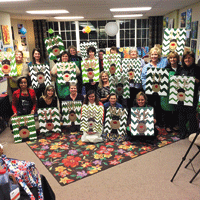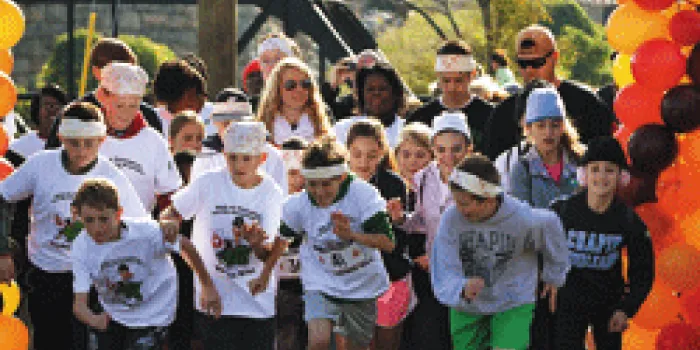Hemophilia of South Carolina (HSC) was at a crossroads in March 2013. The 40-year-old, all-volunteer chapter had been facing some struggles, stagnant membership numbers and a sense that it was not accomplishing all that it could.
HSC received a grant through NHF’s ACT (Access to Care Today, Achieving Cures Tomorrow) initiative, which provides funds to chapters for board development. The grant allowed the chapter to conduct a board summit, bringing in a consultant who’d worked with other bleeding disorders chapters. Sue Martin, HSC president, said the board assessed its history, identified its struggles and brainstormed solutions. “We honed our mission statement as well,” Martin says. “We want to be a valued service. We want to provide education, support and services that people with bleeding disorders really need.”
One of HSC’s biggest challenges was lack of growth in membership. It decided to change from an organization requiring membership dues to one that merely required registration. “We decided we would just be a 501(c)(3) whose mission it is to educate, to advocate and to support,” says Martin. “There is no barrier to joining us.”
Removing the membership requirement allowed the chapter better access to people in the state and the ability to develop partnerships to better reach the community, says Martin. For example, HSC is partnering with the Hemophilia Center of South Carolina hemophilia treatment center in Columbia, as well as local homecare companies and other supportive organizations, sending out welcome packets with information about the chapter’s services.
The chapter also focuses on assessing the needs of the community and serving as many people in the state as possible. To do that, the volunteers realized they needed to hit the road. The chapter divides the state into three regions: the low country, the midstate and the upstate. It will travel to each region to provide programs to families. “Although there’s more travel and work involved, it has been very beneficial to both the community and the chapter,” says Martin. “The families receive local programs and services. And the chapter gets to interact with its constituents more and find out what services the chapter can provide.” For instance, economic troubles affected many families, so HSC doubled its emergency financial assistance. “Wherever our members say their needs are, that’s where we focus ourselves,” says Martin.
Through the Ladies Support Group, the chapter provides opportunities for women to meet and share their experiences. Inevitably, friendships form, and the women find emotional support. “Also, once you get the women involved, they’ll start involving their husbands and their children,” Martin says.

Members of HSC’s Ladies Support
Group show off their holiday crafts.
In November 2013, the chapter hosted its first fundraising walk, the Turkey Trot, in Columbia, South Carolina. A 5k walk along the Columbia Canal in Riverfront Park, the event had more than 150 participants and raised more than $32,000, surpassing the chapter’s $30,000 goal. The park is public, and the chapter erected an enormous balloon archway for a start/finish line. “That generated a lot of interest among the other people who were enjoying the park that day,” says Martin. Trophies were awarded to the largest team, the team that raised the most funds and the single walker who raised the most money.
This year, HSC will host its second walk, an annual meeting, an upstate education day and an advocacy day. It will also continue what Martin calls “HSC on the Road.” The chapter is also planning a family educational weekend in October in Myrtle Beach.
But the biggest changes for HSC this year might be structural. “I think we’re finally going to get an office,” Martin says. “And I think we’re going to perhaps hire some staff.” Martin works an estimated 40 to 60 hours per week for the chapter, depending on the number of events. While the lack of overhead for office space and salaries for staff have allowed the chapter some financial freedom, they limit the chapter’s financial growth, Martin says. The chapter is in the process of evaluating what type of staff it needs. It may apply for a chapter staffing grant through NHF’s ACT initiative.
But Martin is exceptionally proud of what HSC has accomplished in the past and present. “We currently have a great board of directors who work very hard to accomplish what we can as an all-volunteer organization,” she says. “They are my partners in our vision of what HSC can achieve in the future.”

